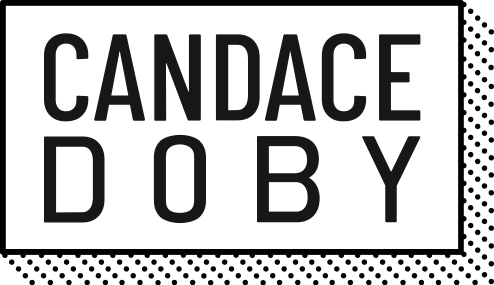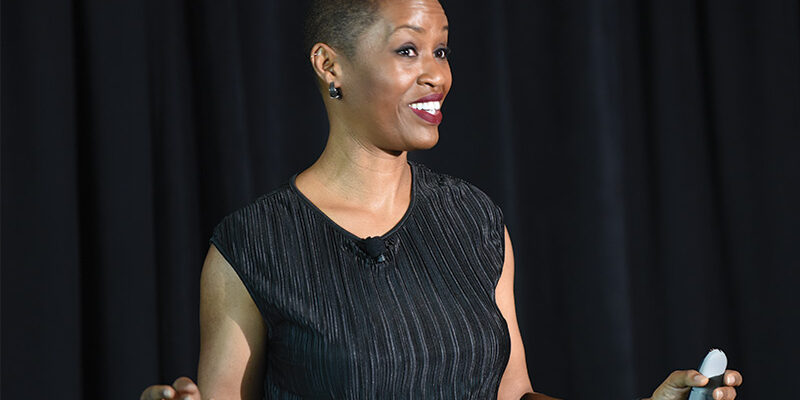I can almost recite word for word a familiar question I get during Q&A sessions after I present.
“How do I get my team to come out of their shells to be more courageous at work?”
There’s no doubt that professionals want to take worthwhile risks in the workplace. Part one of this series explored specific actions they want to pursue. But if you ask some managers, they’ll likely tell you that they can’t crack the code on getting these team members to move past go.
Managers have more pressure on them than ever to produce efficient results, show value that can’t be duplicated by artificial intelligence and build skills among team members that help position their organizations for success in the future. And, their success as managers is inextricably tied to amplifying their team’s ability to perform to their potential.
I asked over 210 professionals from a range of industries — from finance to real estate to youth development to science — in an open-ended survey, what was stopping them from acting courageously at work. And, their responses revealed four clear answers.
This is the second installment of a three-part series that illuminates what risks employees want to take, what stops them from taking them and what they can do to move forward to courageously step into their potential.
Lack of Support
About 14.2% of respondents cited a lack of support as the barrier blocking the way to acting courageously at work. For many, a lack of support meant feeling unheard by their managers. Respondents reported that “management has a history of not taking my suggestions” and that “it’s hard to support the little guy when management doesn’t want to hear it.” Others noted that they had previously stepped out of their comfort zone in a move towards courage but got shut down, which, as a result, shut down their desire to try again. “When I have asked before, I got a chuckle, and they walked away,” one respondent said. Another responded, with a palpable sense of exasperation, that “it would be easier to find another job than to push my ideas.”
When professionals feel like their unique ideas and perspectives go unheard, unnoticed and undervalued, they stop trying. They stop contributing. Managers who most need their team members to speak up and step up to help grow the business can often be the same managers who — due to a lack of support — deter them from being visible and vocal. And, as a result, professionals become disengaged and less productive, both of which can adversely impact the organization’s culture and bottom line.
Fear of Rejection
Another 13.7% of survey participants reported that a fear of rejection kept them from acting courageously at work. Respondents revealed that they didn’t want others to “perceive I’m the problem” or that they feared “rejection of my ideas.” I’ve often talked about fear of rejection in my work, and what I’ve come to understand (and written about before) is that no one wants to lose access to the inner circle or opportunities to lead projects and be promoted. So, we learn to demonstrate pro-social behaviors so we can go along and get along with the group. So much of our brains are devoted to social interaction. Overcoming the fear of rejection requires individual effort and intention. It also requires organizations to create the conditions where professionals feel safe — where they don’t feel like they’ll be retaliated against for bringing their ideas, concerns and true selves forward.
Fear of the Unknown
About 12.2% of respondents wrote that a fear of not knowing keeps them from acting courageously at work. Survey participants in this group used words and phrases like “uncertainty,” “fear of the unknown” and “might not be able to” in their responses. It’s quite natural for anyone to want to feel a sense of certainty before diving into a new project or experience. But, risk, inherently, carries a quality of not knowing with it. This means, professionals who are unable or unwilling to engage with the unknown are professionals who are unable or unwilling to take risks. And, when professionals aren’t taking risks, they’re not discovering how reliable their skills are and what they’re capable of. This untapped potential, undoubtedly, impacts how far an organization can go and grow.
Fear of Failure
Professionals who responded to the survey — 10.3% of them — identified fear of failure as their challenge to acting courageously at work. They revealed that they “don’t want to disappoint,” “get it wrong” or “make mistakes.” One respondent said they were “worried I might be given the chance, then fail.” When professionals feel like failing isn’t well tolerated within their organizations or on their teams, they’ll do whatever is necessary to protect themselves from it. Often that means, they won’t step outside their comfort zones to own their brilliance. As I have written before, organizations stacked with professionals who are afraid of failing are fundamentally restricted from reaching their highest level of excellence. (The professionals themselves are, too.)
These four responses make up about half of the reported reasons why professionals don’t take worthwhile risks at work. In the last installment of this series, I’ll dive into what organizations can do to create a courage-ready culture where their people are equipped to courageously speak up, step up and show up in the workplace.







